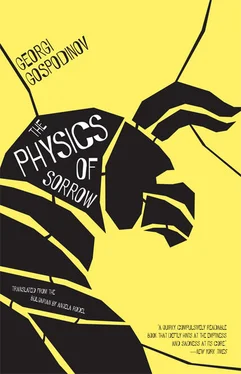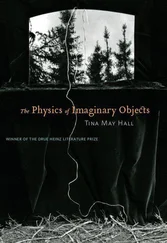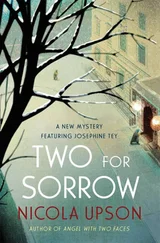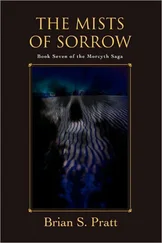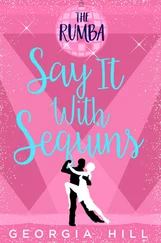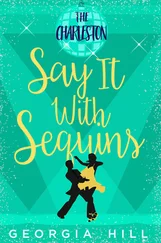I was more worried about my grandfather, who was sitting at her feet, crying quietly. This time abandoned for good.
Much later my grandfather would lie in that same bed one January night and take his leave of us, since he had a long road ahead of him. Mom is calling me to help her with the sacks.
TROPHY WORDS
Szervusz, kenyér, bor, víz, köszönöm, szép, isten veled .
I will never forget that strange rosary of words. My grandfather strung them out on the long winter evenings we spent together during my childhood vacations. Hello, bread, wine, water, thank you, beautiful, farewell. Immediately following my grandmother’s quick and semi-conspiratorially whispered prayer would come his szervusz, kenyér, bor .
He always said that he used to be able to speak Hungarian for hours, but now in his old age all he had left was this handful of words. His trophy from the front. My grandfather’s seven Hungarian words, which he guarded like silver spoons. My grandmother was certainly jealous of them. Because why would a soldier need to know the word for “beautiful”? And she simply could not accept calling “bread” by such a strange and distorted name. God Almighty, Blessed Virgin, what an ugly word! Those folks have committed a terrible sin. How can you call bread “ kenyér ,” she fumed, in dead seriousness.
Bread is bread.
Water is water.
Without having read Plato, she shared his idea of the innate correctness of names. Names were correct by nature, never mind that this nature always turned out to be precisely the Bulgarian one.
My grandma never failed to mention that the other soldiers from the village had brought real trophies home from the front, this one a watch, that one a pot, yet another a full set of silver spoons and forks. Stolen, added my grandfather, and they had never even taken them out to eat with, I know their type.
But my grandmother and Hungary were not at all on friendly terms, between them that spirit of understanding and cooperation, as it was called in the newspapers back then, just didn’t work out. Quite a while later I came to understand the reason for this tension.
I found it strange that my grandfather didn’t like to talk about the war. Or at least he didn’t talk about the things I expected to hear and had seen in movies, the constant battles, artillery fire, kurrr-kur-kurrr (all our toys were machine guns and pistols). I clearly remember asking him how many fascists he had killed and bloodthirstily awaited the tally. Even though I already knew that he couldn’t chalk up a single kill to his name. Not one. And to tell you the truth, I was a bit ashamed of him. Dimo’s grandfather from the other neighborhood had shot thirty-eight, most point-blank, and had stabbed another twenty in the gut with his bayonet. Dimo took a step forward, thrust the invisible bayonet a foot into my stomach and twisted it. I think I gave him a good scare when I dropped to the ground pale and started throwing up. It’s awful getting stabbed in the stomach with a bayonet. I barely survived.
LIVE MEDICINE
The slugs slowly drag themselves across the newspaper, without letting go of it. Several are timidly clinging together, body to body. My grandfather grabs one with two fingers, closes his eyes, opens his mouth and slowly places the slug inside, close to his throat. He swallows. My stomach turns. I’m afraid for Grandpa. And I want to be able to do as he does. My grandfather has an ulcer. The slugs are his living medicine. They go in, make their way through the esophagus and stop in the soft cave of the stomach, leaving their slimy trail there, which forms something like a protective film on top, a thin medicinal layer that seals off the wound. He learned this recipe on the front. Whether the slugs come out the other end alive and well afterward, or die as volunteers, plugging up the embrasure of the stomach lining.
A huge hand lifts me up and sets me at the opening of a red, warm and moist cave. It is not unpleasant, even if a bit frightening. The red thing I have been placed on constantly twitches, slightly bucking and rising, which forces me to crawl farther in toward the only available corridor. At the entrance there is a soft barrier, it isn’t difficult to overcome. It’s as if it opens on its own, in any case it reacts when I touch it. Now there’s the tunnel, dark and soft, which I sink into, horns forward, like a slow bull. I leave a trail behind me to mark the way back. I feel safer with it. The path down is easy, short in any case. The tunnel soon broadens and ends in a wider space, a rather soft cave different from the first one I passed through. At one end I notice a brighter spot, sore and radiating warmth. I pass over it slowly, leaving a little slime. I don’t like this place at all, though. It’s cramped, dark, and musty, claustrophobic, as if the walls of the cave are shrinking and pressing in on me. But the scariest part is some strange liquid that the walls themselves are pouring over me and which is starting to sting. I don’t have the strength to budge, as in a nightmare where you keep moving more slowly and slowly and slow.
To feel for everything, to be simultaneously the swallowed snail and the snail swallower, the eaten and the eater. How could you forget those few short years when you could do so?
Sometimes, while writing, he feels like a slug, which is crawling in an unknown direction (in fact, the direction is known — there where everything goes), leaving behind itself a trail of words. It’s doubtful whether he’ll ever follow it back, but along the way, without even meaning to, the trail may turn out to be healing for some ulcer. Rarely for his own.
HAVE A GOOD TRIP
And yet, my grandfather did have his secret from the war. On that January night, when he wanted the two of us to be left alone, the door to the unspoken opened just a crack. He called me in, the eldest of his grandsons, the one who bore his name, I was 27. We were standing in his room, low-ceilinged, with a little window, where he had grown up with his seven sisters, where I had spent all my summer vacations as a child. He could hardly speak due to the recent stroke. It was just the two of us, he went over to the wooden sideboard, rummaged at length in one of the drawers, and there, from beneath the newspaper lining the drawer’s bottom, he pulled out an ordinary sheet of notebook paper, folded into four, quite rumpled, and yellowed. Without opening it, he pressed it into my hand and signaled to me to hide it. Then we sat there, embracing, as we had when I was a child. We heard my father’s footsteps in front of the house and let go. Two days later, my grandfather passed away. It was the end of January.
Lots of people came to see him off. He probably would’ve been anxious if he had seen them. The sons and daughters of his seven sisters arrived from all over, laid some meager winter flower by his head and placed their order for the beyond. The dead man is something like express mail in these parts. Okay now, Uncle, give Mom our best wishes when you see her. Tell her we’re fine, that little Dana is graduated this year, everything is tip-top. Oh, and also tell her that her other granddaughter left for Italy. For now she’s just washing dishes, but she’s got high hopes. Well, okay then, Uncle, have a good trip. Afterward the nephew giving these instructions kisses the dead man’s hand and moves away. He returns again shortly, apologizing, he’d forgotten to say that they’d sold the house in the village, but it was bought by good people, all the way from England. Well okay, goodbye again and have a good trip. Have a good trip. In these southeastern regions people don’t say “rest in peace”. they just wish you a good trip. Have a good trip.
Читать дальше
